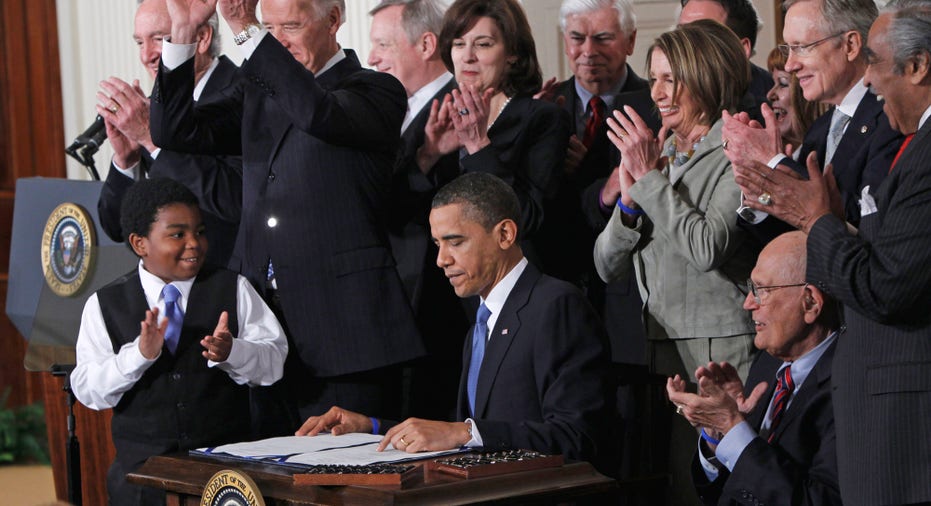Romney, Obama Face Off on Obamacare

While President Obama and Governor Romney certainly tangled over many issues in their first debate last night, one of the longer arguments focused on Obamacare and the impact the law could have on small businesses.
Governor Romney made it clear, if elected, he plans to repeal Obamacare, because so many small businesses have anecdotally reported they plan on dropping insurance due to high costs attached to the reform.
“The cost of health care is just prohibitive, and we’ve got to deal with cost,” he said. “Unfortunately, when you look at Obamacare, the Congressional Budget Office has said it will cost $2,500 a year more than traditional insurance, so it is adding to costs.”
Romney also cited a National Federation of Independent Business survey that found three-quarters of small businesses said they would be less likely to hire due to Obamacare.
“When the president ran for office, he said by this year, he would have brought down the cost of insurance for each family b y $2,500, and it’s gone up by that amount,” Romney said. “It’s expensive, and expensive things hurt families.”
Obama, Romney argued, has spent the past two years fighting for his health-care reform act, rather than focusing on job creation and fixing the economy.
“It has killed jobs,” he said.
In his rebuttal, President Obama shot back that health-care costs are the biggest driver of the U.S. federal deficit, and that having health-care coverage is part of making sure middle class families are secure in America.
Also, the basis for his reform act was founded on a “Republican idea,” Obama said.
“When Obamacare is fully implemented, we’re going to be in a position to show that costs are going down,” he said. “And over the last two years, health-care premiums have gone up—it’s true—but they’ve gone up slower than any time in the last 50 years. So we’re already beginning to see progress.”
If Obamacare were to be undone, the president said “50 million people” will lose their insurance.
“We can bring down costs without leaving millions of people out in the cold,” he said.



















